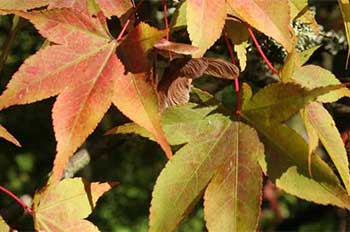Autumn Colour Watch: now, that's what I call autumnal...
Autumn is a spectacular time of year at Westonbirt. This photo-packed blog will take you through the weekly highlights of what’s looking good and where. Photographs featured here have been taken in the few days prior to publication. Visit the Forestry Commission website for more information about what’s happening at Westonbirt during autumn
After a slow (but early!) start, the leaves are now becoming noticeably more colourful as each day passes, in large part due to the chillier weather. For us, the frosts promised by the weather forecasters bring a sense of anticipation of the autumn colours about to appear in the coming days and weeks.
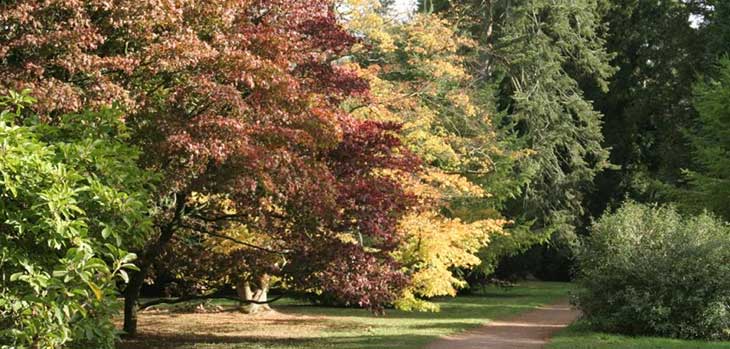
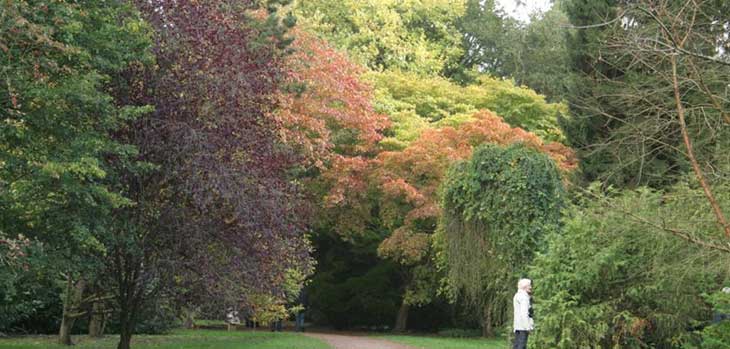
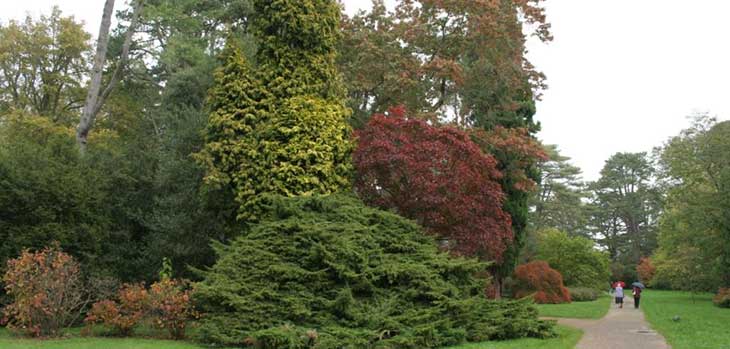
In many places in the Old Arboretum, groups of trees look brighter in colour than they did last week. The first two plantings pictured above are on Main Drive and are beginning to show the spectrum of colours that Acers offer in autumn, as well as some of the conifers that provide such a contrast. The planting on Mitchell Drive is another example of how conifers and deciduous trees work together to give the structure and bright splashes of colour that are an important part of what makes Westonbirt so special.
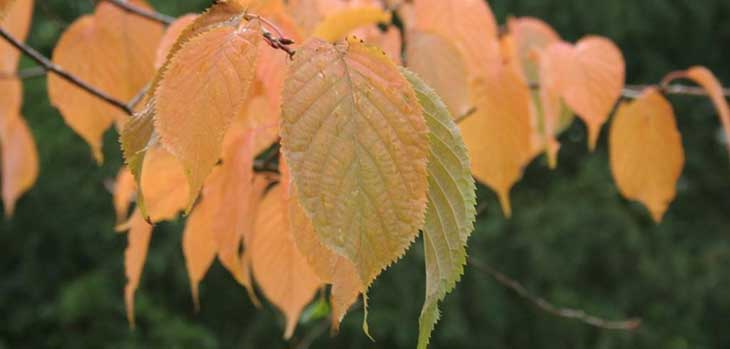
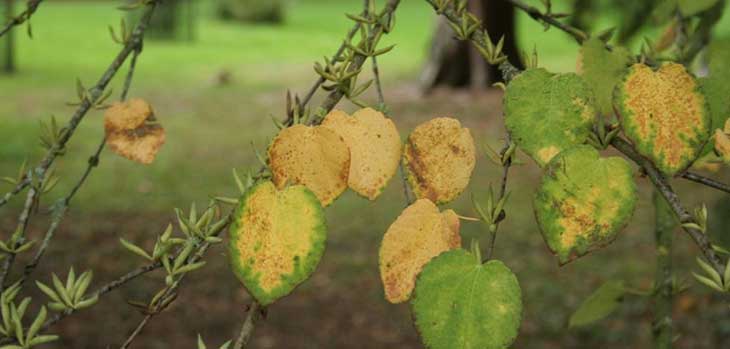
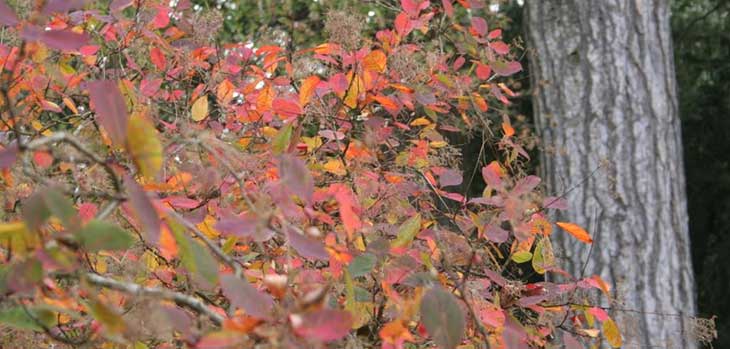
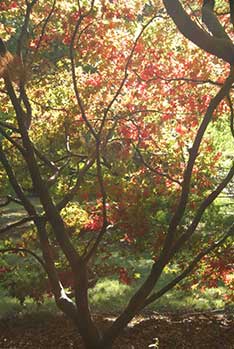
Elsewhere on Mitchell Drive, there is an array of unusual autumn colour. The Sargent's cherry pictured has vibrant peachy orange leaves that are quite dazzling. The beautiful katsura smells divine and this example has tiny pod-like fruits on it at the moment. If you're a Friends of Westonbirt Arboretum member you may have read a piece in the autumn edition of the Westonbirt Magazine which promised fabulous autumn colour from Cotinus. As you can see it doesn't disappoint on this front, with a selection of primary colours on show!
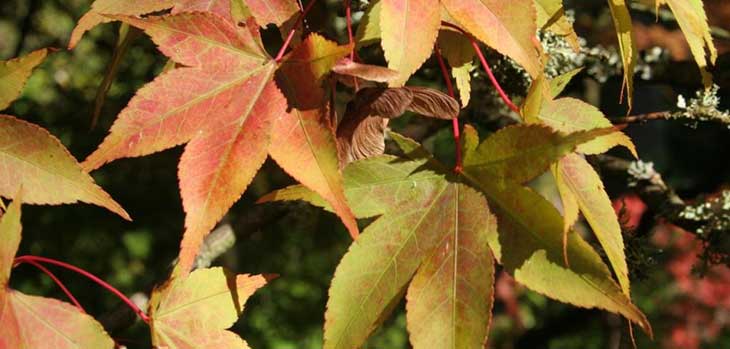
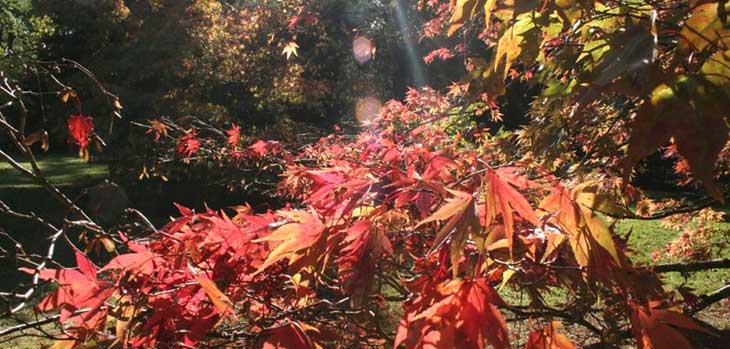
On Acer Glade change is starting to happen in earnest now. As you can see above it is not a case of a blanket of red leaves, rather a combination of red, green and gold.
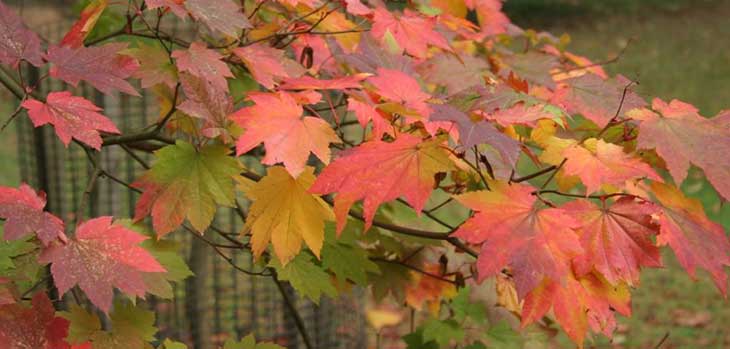
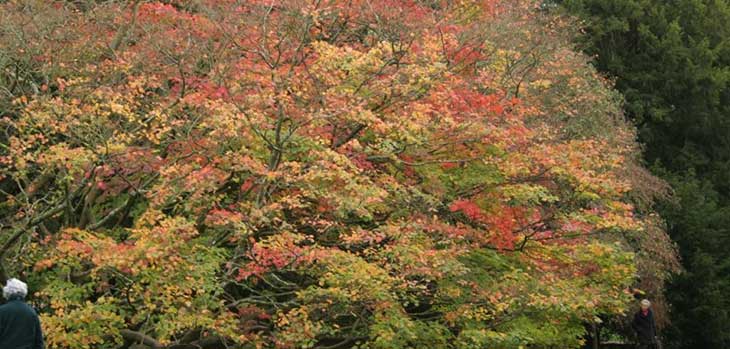
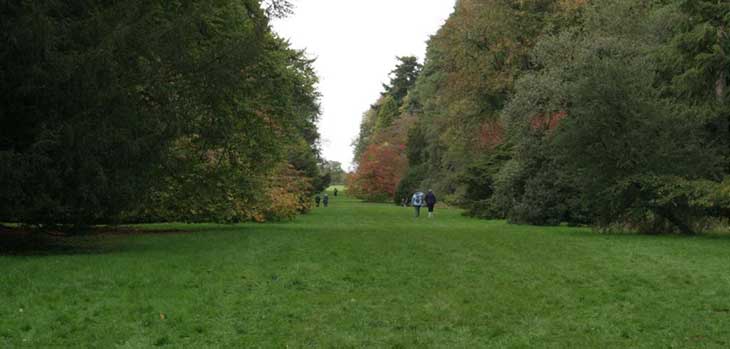
This combination of red, gold and green is also a feature of the full moon maples pictured above. As you can see, on Holford Ride these, along with the Persian ironwoods, punctuate the dark green of the conifers and those trees which are still yet to turn their autumnal shades.
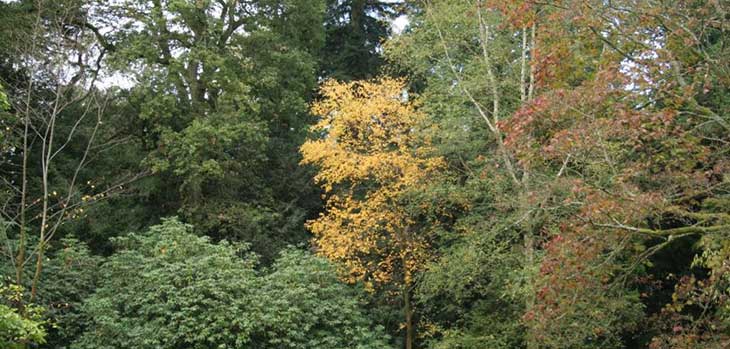
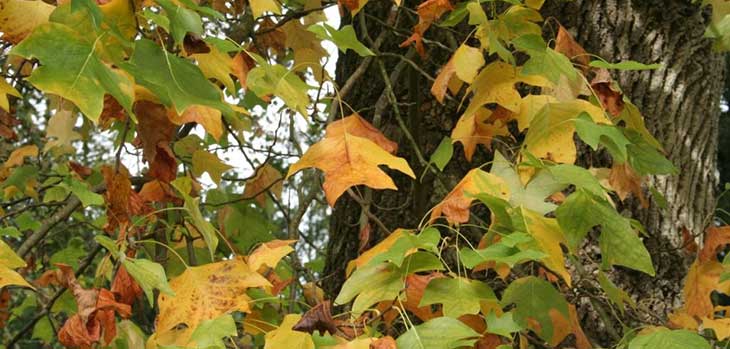
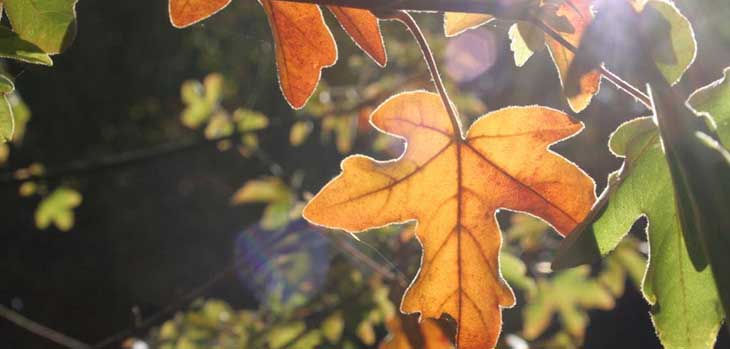
Whilst we're on the subject of the gold end of the spectrum, the yellow birch in the Victory Glade area certainly sparkles on this front, as do the tulip trees on Jackson Avenue. On Main Drive, a few of the leaves on the field maple pictured above have turned a burnished gold in amongst their dark green neighbours and are beautiful to look at in the sunshine.
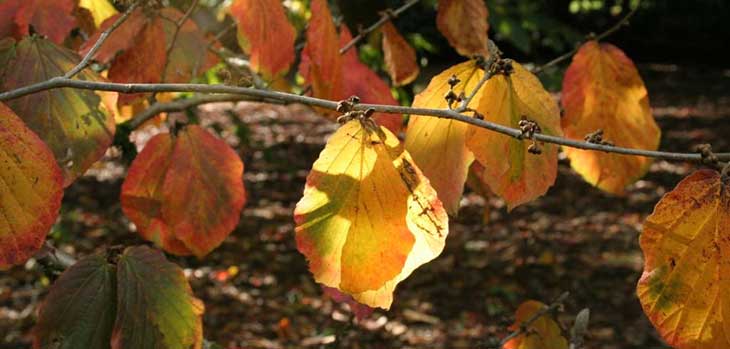
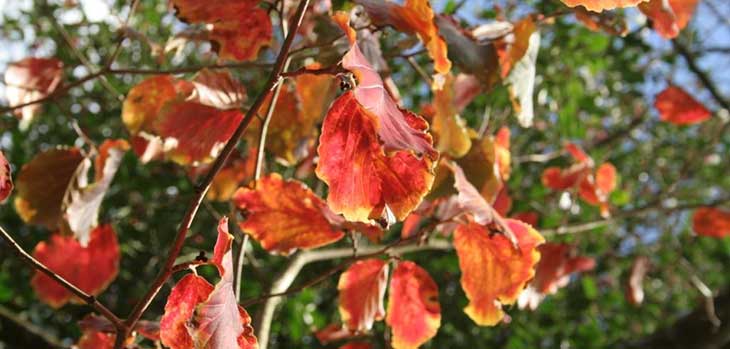
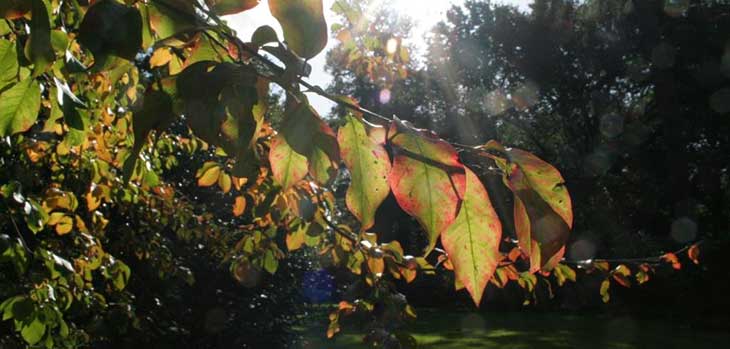
The sunshine lit up the witch hazel in the Old Arboretum this week. You can see how bright the two examples above look on a sunny day. The same is true of the Nyssa sylvatica or tupelo pictured above. Again it is the range of colours on a single tree that bowls you over.
Over in Silk Wood, you’ll also notice a change on last week.
Following the Silk Wood route taken for last week’s colour watch blog, you’ll see trees previously showing their green foliage are now looking much more autumnal.
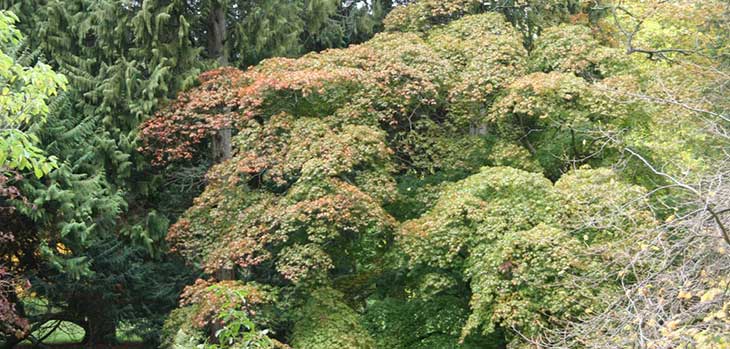
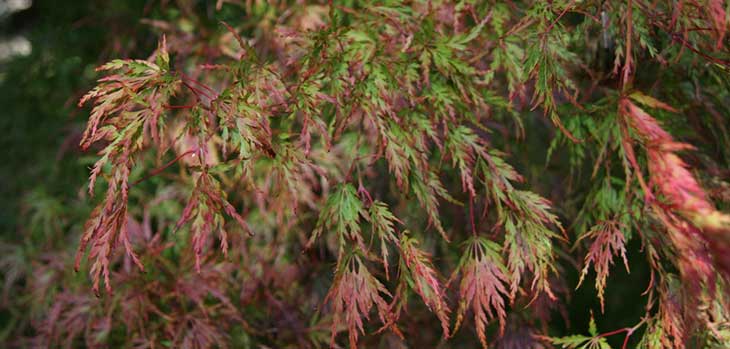
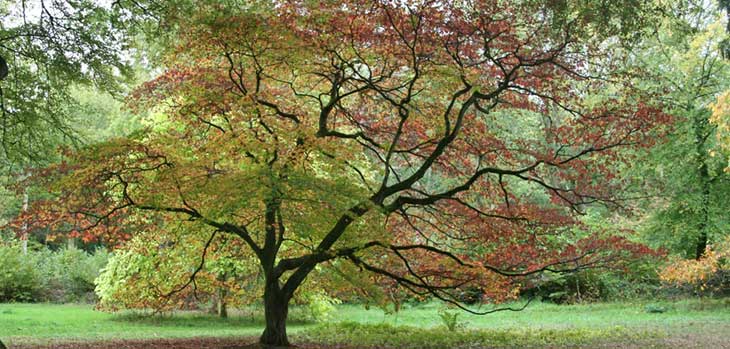
The leaves on the bigger Japanese maples Acer palmatum along Willesley Drive are tinged red, brought on by the couple of colder nights we’ve now experienced. Take a look at a group of maples where the Sand Earth path joins Willesley Drive and the specimens that border the main pathway for examples.
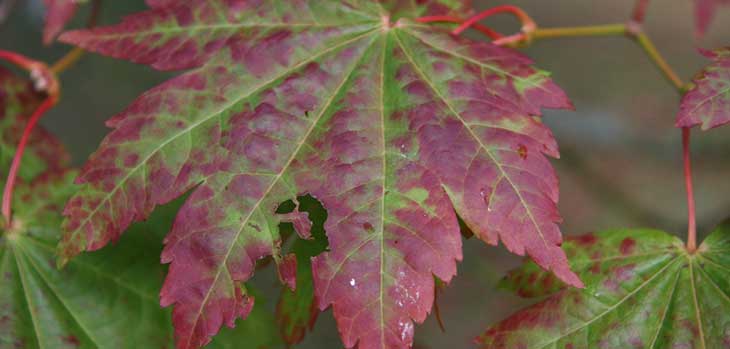
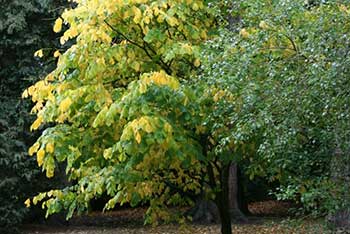
For a splash of yellow, take a look at the yellowwood Cladrastis lutea to your right as you walk towards the crossroads of Willesley Drive and Broad Drive.
A little further along, the full moon maple Acer japonicum on the corner is also showing a beautiful shade of red. Look closely at the leaves to see the red absorbing the green as it spreads across.
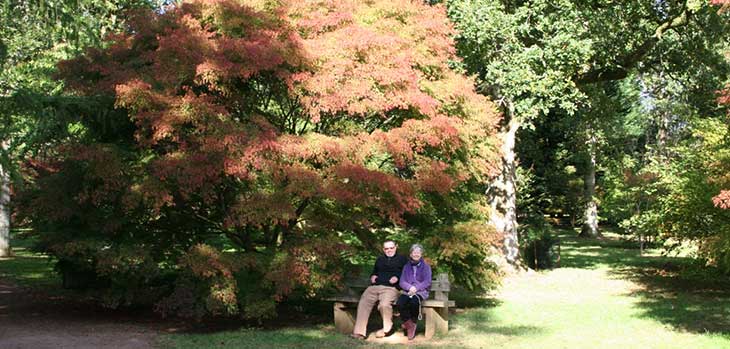
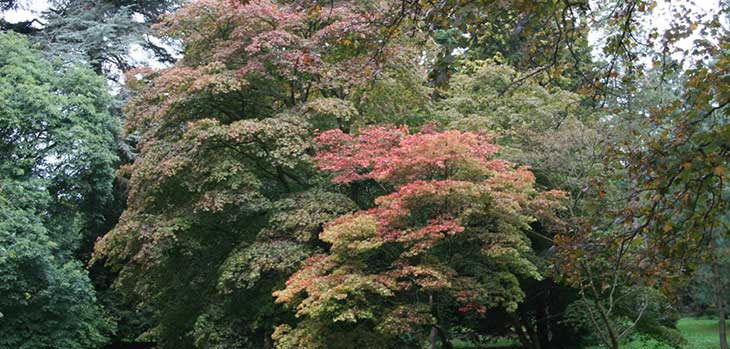
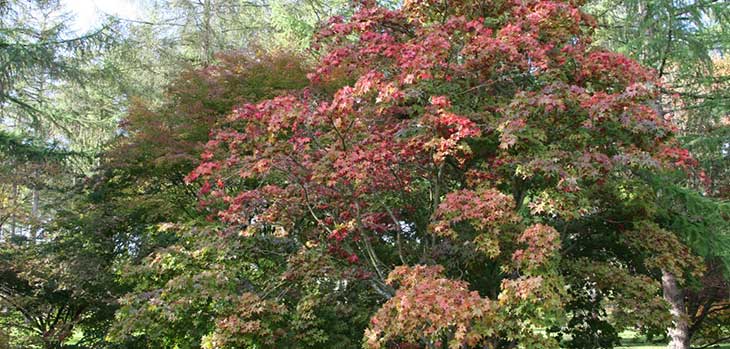
Revisit the National Japanese Maple Collection to see a further development. This Japanese maple by the bench looked green this time last week! There are also some beautiful examples of Acer palmatum dissectum in the collection, showing off their stunning serrated leaves.
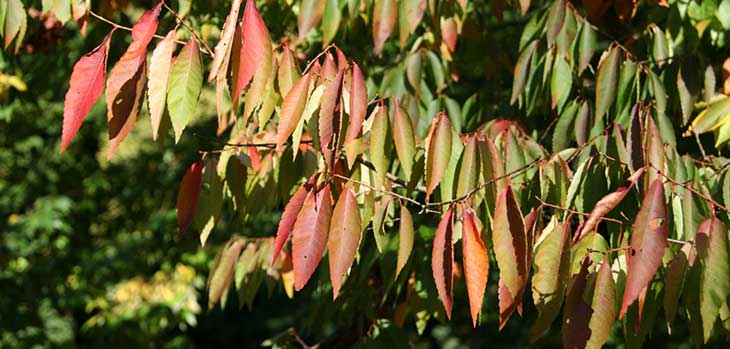
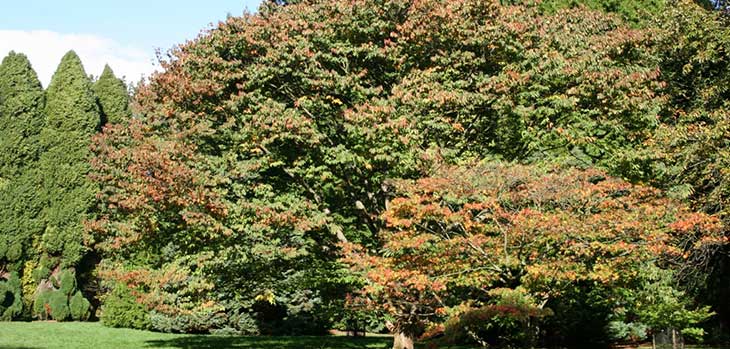
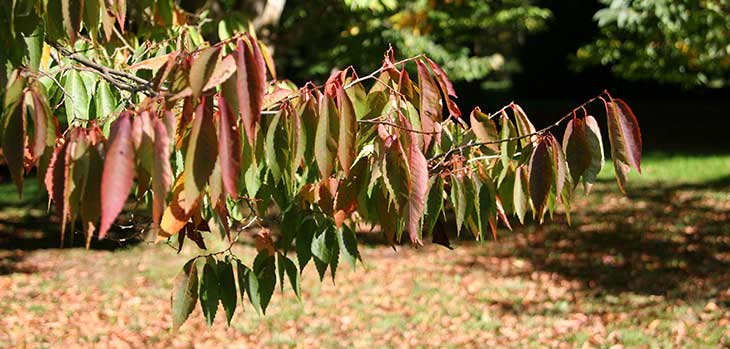
Along Broad Drive the zelkova serrata, which originates from Japan, Korea and China, is showing an orange/ red shade of leaf colour. This tree is an ornamental tree, often used for producing bonsai varieties; however the specimen on Broad Drive is large and impressive.
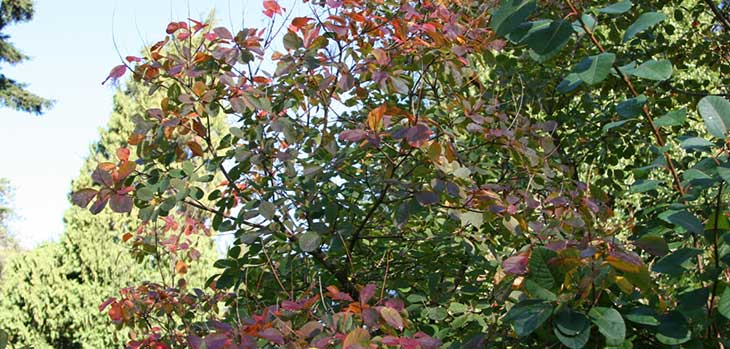
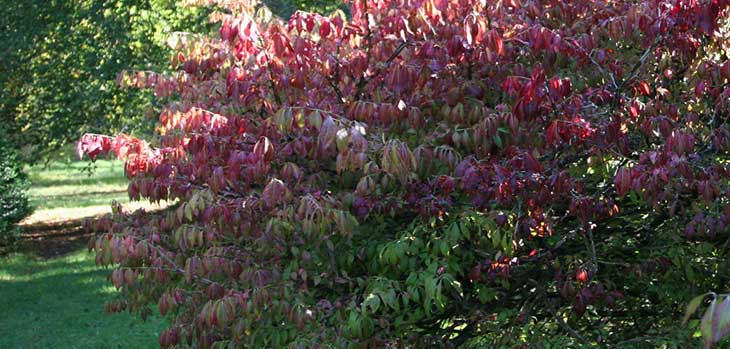
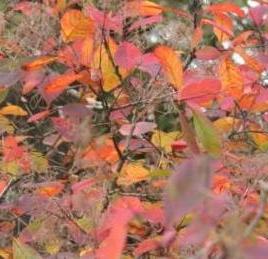
A final show of red for this blog comes from the winged spindle Euonymus alatus is a deciduous shrub native to eastern Asia, in central and northern China, Japan, and Korea and the smoke bush Cotinus, native to the northern hemisphere. These large shrubs have great ‘autumn foliage’, and will develop more in colour over the coming weeks.
Useful links:
Directions to Westonbirt Arboretum (our postcode is GL8 8QS)
